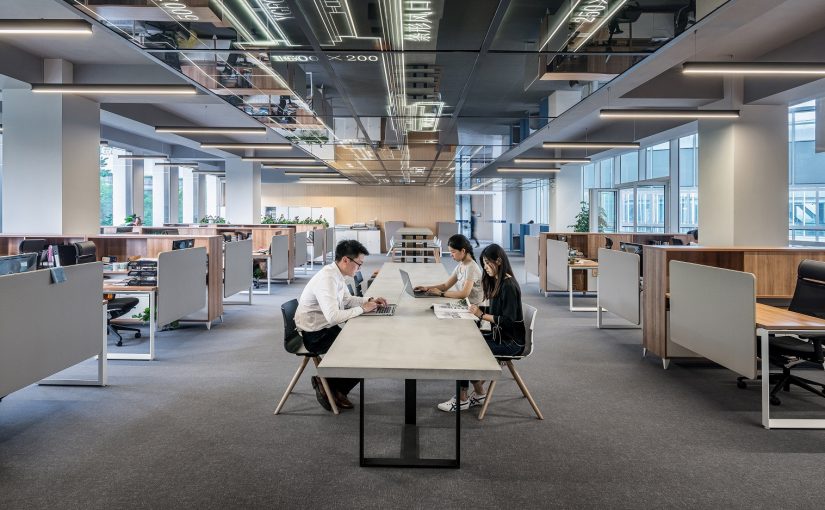As the UK Government announced further measures yesterday, to relax the current lockdown restrictions, and with many businesses beginning to reopen and more ‘relaxing’ measures to come in the coming weeks, will shared workspaces be safe to use after Lockdown?
What is the flexible space industry doing to ensure the compliance with hygiene and contamination control for the many shared space users?
There is no doubt that the way we all work has changed greatly, and probably forever, as the spread of Covid-19 exposed how vulnerable we potentially were, just by going about our daily business and socialising.
Lockdown has caused many to rethink how they want to work post-lockdown, particularly when it comes to commuting and what kind of working environment they wish to work from.
With Furloughing, self-isolation, and employees and business owners adapting to the new reality of home working, many have realised there are many benefits to cutting the long daily commute and that for many, it’s been a positive experience on some levels.
Both employers and employees alike have seen that with modern technologies, such as Zoom, Skype and Microsoft Teams, it is indeed possible for businesses to function just as well for most, on the new remote model.
So with a growing drive to work at, or closer to home, the use of shared workspaces should be a good idea, allowing the flexibility of working closer to home, yet in professional surroundings and with business facilities; without all the distractions of the home based office that many will have become newly familiar with!
But there are still fears amongst many workers, about using these shared facilities, and a need for reassurance that they are not putting themselves, or their wider families at risk by using them.
The industry has responded quickly to these concerns, with many flexible space operators undertaking full and comprehensive reviews of how they will run their facilities post-lockdown, to give confidence to users that they are indeed safe places to use for conducting their business.
These measures include maintaining social distancing in their premises, so that facility users are able to function within a safe proximity to other space users, this to be within the Government guidelines for what that safe social distance should be, currently set at 2 metres apart, yet with recent research suggesting that 1 metre may indeed be a safe proximity according to the WHO.
Numbers of users of facilities at any given time, is also another important measure operators of flexible spaces are considering, calculating the peak tolerances that need to be observed, so that facilities can maintain social distancing easily and not get too overcrowded to maintain this.
For many new or existing users of shared spaces, one of the main concerns is the common areas of the buildings, these may be lifts, kitchens, breakout areas, restrooms…etc. and how these are going to be kept safe when other people are using them?
Much has been discussed about surface contamination in recent weeks, with the American CDC, stating that transmission through surfaces is less of a threat, as Covid-19 is primarily spread from person to person via respiratory droplets.
That aside, space operators are not taking any chances, and are putting in place robust plans for hygiene and infection control including regular regimens of cleaning and disinfecting, making hand sanitisers available in common areas and fully cleaning each work area between each client visiting.
These are the same challenges that any food/ drink retail outlet will face in the coming weeks as they reopen to some form of normality, yet it is likely that food outlets such as cafés, bars and restaurants will face a much greater challenge due to the harder to control numbers and much greater use of common areas and facilities.
Shared space operators may have an edge here, in that they have much greater control of their internal environments and user access control, to enable a greater degree of hygiene and viral agent protection.
As well as the many unseen ways that operators will be assisting users to maintain scrupulously clean facilities, they also plan to have overt reminders in place at key areas within their buildings, signs, stickers, floor mats etc.. to remind users of the basic requirements of hygiene and physical distancing, to ensure that the strategies for limiting any potential contamination are, as much as possible, adhered to over the coming months when perhaps people begin to have a less ‘alert’ attitude to the threat.
FlexSA, the Flexible Space Association, the leading UK body for representing shared spaces, will be spearheading the move towards a safe and successful future across the industry, the newly published Code of Conduct sets the highest standards for the flexible workspace industry and states that members will ‘Comply with all necessary legislative and regulatory requirements which are applicable to their business’.
This in practice, for users means that the whole membership is committed to working with Government, Scientists and medical advisers to ensure that the future for shared workspaces is secured by ensuring the client-base feel safe and secure whilst using any flexible spaces.
Back to the current situation, of millions of small business owners and employees looking for a future of more convenient working on their own terms; it’s very likely that the future will look like a more blended approach, some time is spent at home, some in shared workspaces and with less time spent in large head office buildings.
It looks like a very bright and safe future for both users and operators alike if the measures a fully rolled out and universally adopted.
